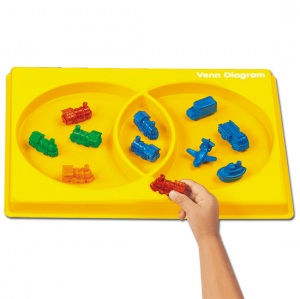The following is from an e-mail I sent to Beth Terry of Fake Plastic Fish in relation to an article she’s writing. It’s in response to a Marketplace radio piece about how green products are now being marketed as money savers and good for you, rather than the traditional “good for the planet.” It’s a bit rambly and stream of consciousness, but I thought I would share it anyway.
I get annoyed with the sustainability snobs who feel that’s there’s only one right way to live in a sustainable manner, and that decisions made with the wallet in mind are somehow lesser.
I have always felt that frugality and green living dovetail really well in most areas of daily life. For example, my family of four has a monthly garbage pickup for our 20 gallon can. This saves us $5 per month, which is not a huge savings. However, because we compost, we don’t need to buy store bought compost like our neighbors, and the annoying task of “garbage night” is cut from weekly to monthly. (A simple living bonus!)
Another example of the lovely merging of frugality and green living is how I am a member of The Compact, which is a buy-nothing-new movement. This has saved my family countless thousands of dollars, but has also saved tremendous amounts of unnecessary manufacturing, shipping and the packaging that comes along for the ride.
Not everything follows this model though, as eating organically is certainly the greener choice, yet is a huge financial commitment. The way I work around this dilemma is that my family eats real, minimally processed food and never eats fast food. We do buy some organic food, but are not in a place where we could afford to go the whole sustainably-raised hog.
Tonight’s dinner was burritos made from pinto beans that I bought in bulk from Costco and then cooked myself, local (not organic, but hormone-free) cheddar cheese, tortillas from a mix, (which is packaged in paper) romaine lettuce bought using my own reusable produce bag and “El Pato” brand salsa that comes in a recyclable can. We drank tap water and used cloth napkins that I’ll wash in my second hand washing machine and then hang to dry.
People can get very hung up on the “organic” and “green” labels, but there are almost endless options for green living that are kind to the planet without draining the bank/locally owned credit union account. I saw a plastic container of “organic” baby crackers at a friend’s house recently, which pretty much sum up how the big picture of treading lightly on the planet can get lost in the marketing of organics.
My #1 priority is to find products that support my green ethics while also saving me money, which often means not buying anything. Organic bamboo sheets? Pass, I’ll just sleep on what I already own. Instead of a “green” laundry detergent, I make my own by grating soap and combining it with washing soda and borax. Not only is just a small amount needed, but the resulting product is green, only packaged in paper and as cheap as all-get-out.
I got interested in green living from a place of frugality. Amy Dacyczyn’s “The Tightwad Gazette” was hugely influential to me, and her methods of doing without and figuring out how to do with what you already have got me where I am today.
I doubt there are two people who would agree about how a green life should be lived. My family owns two cars, yet only drive small amounts and we never fly. Someone else might cycle everywhere, yet fly 4-5 times per year. Who is more green?
Really though, how we live our lives is not a competition. If this were true, then face it, we’d all be losers.
Here’s a short piece I wrote awhile back about the “Venn Diagram” of frugal living and green living. I’m not going to get drawn into an argument about how my family eats or what transportation we use to get where we need and want to be. I’m doing my best and you’re doing your best. Let’s respect each other’s choices.
Katy Wolk-Stanley
“Use it up, wear it out, make it do or do without.”




{ 22 comments… read them below or add one }
I’ve often thought about how wonderful it is that frugal living and green living overlap so often. Like you said, there are exceptions, but most of the time, you don’t really have to choose between one or the other.
You get the same thing with the frugal. I consider myself more frugal than green but as you said it overlaps plenty. I recycle/ reuse everything I can, which saves. Some of the frugal ideas I don’t use, your dollar store post is a good example. I have nothing against these stores its just that I don’t need anything they sell. I have bought one item there, tax cut last year. This is also the way of thrift stores, garage sales, coupons, and lots of other ways posted around to save money. I have more than I need in most areas, when I need something I think about it then get just what I want. This saves me time and money but you would think I was the worst frugal/green person around to hear some talk.
I’m doing the best I can with the resources I have.
I had a dilemma going on for a while on whether it was preferable to buy thrifted things that weren’t “green” versus buying something new that was supposed to be organic, sweat-shop free, you name it. I quickly arrived at the conclusion that thrifted was actually more “green” even though to the untrained eye I could look like I am walking around in a brand-spanking new outfit. I guess I still feel like a lot of the green stuff is heavily marketed with the same peer pressure and ridiculous advertising that you can find in other material goods. And that pressure is part of what I really want to be free of!
Thank you for writing this. I completely agree with you, it’s not a competition, or yes, we would all be losing. The new marketing fad of “organic” can really burn me sometimes. I say,buy from your local farmer and don’t eat exotic foods. The fact that the marketing machine is now “green” is a completely separate reality from the frugal, simple lifestyle I am striving to acheive.
This was absolutely fabulous! You stated in a very clear and cogent manner, exactly what I think/feel on this topic.
I used to live in a community that was very “green conscious” – and it was also very snobby and competitive about “green issues.” I got tired of feeling like I had to defend my family’s choices and approaches becasue they weren’t “green enough” or whatever. I now live in a place with no Whole Foods Market, no curbside recycling (we can haul it to centralized bins ourselves), and a theoretically lover level of “greeness.” Yet many people here grow food in their gardens, live frugally, cook from scratch at home, don’t travel excessively by air, etc. I think the simplicity of life here translates to a more eco-friendly footprint in many respects, and often feel like there’s more of a true eco-consciousness here than in my previous uber-green but snobby/competitive community.
I LOVED your line about “I’m doing my best and you’re doing your best. Let’s respect each others’ choices.” THAT’S what it’s all about!
Urgh…the unneccessary packaging of so many “green” and “organic” products and foods makes me crazy!! (like recycled paper from Staples in a plastic wrapper…what’s the point???). And I definitely think the lifestyles of our grandparents, with their compost piles, gardens and depression-era sensibilities of re-using are in some cases more green than buying more stuff that is supposedly sustainable. But, on the other hand, if I do need to buy something new, I will go with the most “green” option I can afford, which to me incorporates natural, chemical-free materials, organic growing processes, minimal packaging, local production, worker rights and fair trade practices. I don’t want my new purchase to be polluting someone else’s backyard.
I went to buy “organic” blueberries last summer and then turned right back around when I saw that they were in plastic clamshell packaging. I then bought my blueberries at Safeway, which came in cardboard boxes. I will not pay a premium for organic, if it’s encased in plastic.
For realz.
Katy Wolk-Stanley
The Non-Consumer Advocate
Katy, We head off to the blueberry patches and pick upwards of 25 lbs of blueberries and package them in our reuseable ziptop bags. There is something peaceful and fun about picking them yourself. And the smoothies we have in the winter….yum.
Andrea – you got me curious: how do you think paper should be sold?
I’m with ‘Hiptobeme’, I try to buy local first and organic second. If I go with organic exclusively the lettuce I purchase may have been trucked thousands of miles to get to my neighborhood grocery store- it seems to defeat the purpose of buying organic.
Every few months my husband and I start a new challenge. The last one was to cut our garbage going to the dump (we don’t have garbage pick up) in half. We accomplished that and is now a habit that is part of our daily lives. I want these changes to stick in my life and not be a passing fancy.
Dear Katy,
You might enjoy this post at this blog:
http://tinyouroboros.wordpress.com/2010/03/01/green-movement-is-religious/
Katy this had to be one of my fav posts by you. I believe if we’d all adapt a MINDFUL attitude about consumption, we’d watch our world change without petty arguements and devisiveness.
I always find your views judgement free and I really love that about you and what you do and how you live.
Great post! I find myself blowing my own mind over some of these issues, so it’s nice to know I’m not the only one. In my area, we are in the definite minority of composting, recycling and gardening families, so honestly I want to embrace these folks for the things we have in common and not pick nits over where they bought their blue jeans. Plus I think my basic problem with the whole “green marketplace” is that it’s still sending that “gotta buy-buy-buy” message that is the problem in the first place. I mean, ultimately I think most of us are doing all of these things to have a simpler, more genuine life, right? To me, buying green is great, really, but I am mindful that it can easily morph into just another way to define myself through consumption.
Thanks for writing this. I get to feeling guilty about choosing non-organic (but hormone-free) milk at Whole Foods for $1.99 over organic for a lot more. I try to find a balance, too, and sometimes get discouraged over not going “whole hog” on organic food, (and if I don’t, then what’s the point?) and realizing that it costs a lot to do that. Reading your blog over time has definitely inspired me to think more about packaging, too. A new challenge to take on!
“sometimes get discouraged over not going “whole hog†on organic food, (and if I don’t, then what’s the point?)”
Because “perfect” can be the enemy of “better than before.” and it’s not an all or nothing proposition. A little bit helps save the world, too. Also, organic may not be as green as one thinks. Read the second section of Michael Pollan’s “The Omnivore’s Dilemma” to see what I mean.
Being frugal and green definitely overlap. If you buy used or repurpose some item, that is greener than buying new even if it is organic or made from sustainable material. That used shirt from Goodwill is better than that new $20 organic t-shirt.
When it comes to food, I do a combination of local, organic, and pricing. I buy hormone-free milk from a local dairy, not organic milk because this milk is half the price of organic. I avoid organic greens if packaged in plastic clamshells. I don’t buy produce from a foreign country – except bananas. I support local farmers when buying eggs and meat even if the prices are higher because the quality is better. Local even if pricier is better than shipping costs. In the summer, I grow a lot of my own produce and support local farmers. We are eating less meat. I also have a compost pile which cuts down on my garbage.
In other areas I use CFL bulbs, hang my laundry, try to combine errands, take short showers, buy used instead of new as much as possible, and carefully evaluate any major purchases.
Each of us makes our own choices on what works for us – frugally and for the environment. Every little step adds up to big ones!
I edit research-based writing for a living, and I’m sorry that I can’t remember where this fact came from, but it went like this: A family of 4 will do more for the planet by giving up meat twice a week than by buying a new Prius. So to be green, we also have to think in terms of going without/substituting. This is of course exactly opposite of the message ads give us. There are many ways to be “green”!
Thanks for sharing your thoughts on this topic – I completely agree! Especially about the “let’s respect each other’s choices, we’re all doing the best we can” part :). I can’t afford many organic foods right now either, however like you, our family eats very minimally processed foods, mostly bought in bulk in minimal packaging. We eat a lot of legumes and not much meat. We support local farmers (especially pick-your-owns!) and grow what we can manage in our urban backyard organically. We’ve been reusing the same canning jars to preserve our harvest for 25 years, lol (gosh I love Mason jars and their many, many uses).
Amy Dacyczyn wrote an excellent essay on this topic in her Complete Tightwad Gazette book. She has been a huge influence on my life as well.
BTW, if you want to add tortilla mix to the list of things you no longer need, there’s a very simple recipe here:
http://www.asksasha.com/Healthy-Cooking/Homemade-Whole-Wheat-Tortillas-Recipe.html
I find I need to add a bit more water than called for to get a nice pliable dough, but other than that, these are terrific (and cost about 75 cents to make 8 large flour tortillas if you buy your flour in bulk).
Well put Katy!! I totally agree with you : )
We live in a shared household,and it’s not possible to be as green as we used to be, and we are still steering gently on frugal. But it is, by all counts, in better shape than it was. Money gets saved at the grocery store because I shop only from a list, buy local as much as possible, and don’t buy convenience foods. But as for buying organic – only if the price and quality is comparable, and the packaging is sensible. Milk here costs $4-$5 a gallon, organic milk can be almost twice as much. I looked at goat’s milk products recently and commented that for the price of five packages of what I wanted, I could buy a goat.
BTW, paper reams used to come wrapped in paper, or for good paper, in boxes.
Magdalena,
Wouldn’t that surprise your husband if you came home from the grocery store with a goat!
Would you like paper or plastic?
Katy Wolk-Stanley
The Non-Consumer Advocate
Great post Kathy.
I know that many people can’t afford organic foods, non-toxic cleaning products and organic personal care products, but most people I know choose to spend their money elsewhere.
I wish people would open their eyes and hearts to the fact that we only have ONE planet. That all the chemicals spewn everywhere and onto everything will eventually affect them, their children or someone they love, including beloved pets.
We live in democracies and we have the priviledge of choosing, but I am looking forward to the day when we will collectively choose organic, non-toxic produce and products as the ONLY option. Because I have to live with the consequences of other people’s choices.